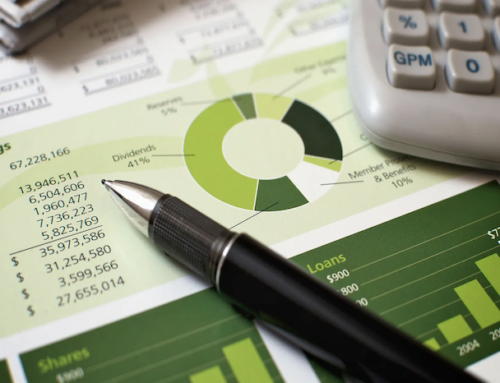Commercial real estate has long been considered a cornerstone of the American economy, serving as a vital engine for growth and investment. However, beneath the surface of glossy skyscrapers and bustling shopping centers, a storm is brewing in the United States’ commercial real estate market. The COVID-19 pandemic and its aftermath have left a trail of economic devastation, triggering a pending crisis that could have far-reaching implications. In this blog post, we will delve into the factors contributing to the impending commercial real estate crisis, its potential consequences, and strategies for weathering the storm.
- The Impact of the COVID-19 Pandemic
The COVID-19 pandemic wreaked havoc on the commercial real estate sector in unprecedented ways. Lockdowns, restrictions, and shifts in consumer behavior have significantly impacted businesses across various industries. Office buildings, retail spaces, hotels, and restaurants have all faced tremendous challenges.
a. Remote Work and the Office Space Conundrum The rise of remote work during the pandemic has raised questions about the future of office spaces. Companies have embraced remote work as a viable option, leading to reduced demand for office space and increased vacancy rates. The hybrid work model may become the norm, prompting a reevaluation of the commercial office market.
b. The Struggling Retail Sector The retail industry has been grappling with declining foot traffic, shifting consumer preferences, and the rise of e-commerce giants. Traditional brick-and-mortar retailers have faced a daunting battle to adapt and survive. The pandemic has only accelerated these challenges, leading to bankruptcies, store closures, and an uncertain future for retail properties.
c. Hospitality and Tourism Woes Hotels, resorts, and hospitality businesses have suffered immensely due to travel restrictions and decreased tourism. The absence of business travel and large-scale events has taken a toll on the hotel industry. Many hotels have struggled to stay afloat, while others face uncertain prospects for recovery.
- The Mounting Debt Crisis
The financial fallout from the pandemic has left businesses burdened with unprecedented levels of debt. As businesses faced prolonged closures and reduced revenues, many relied on loans and credit lines to stay afloat. The surge in debt levels, combined with ongoing challenges, has created a ticking time bomb in the commercial real estate market.
a. The Looming Wave of Loan Defaults Businesses struggling to recover may find themselves unable to service their debt obligations. This could trigger a wave of loan defaults, especially in sectors such as hospitality, retail, and office spaces. Loan defaults can lead to a domino effect, impacting lenders, investors, and the broader economy.
b. The Role of Commercial Mortgage-Backed Securities (CMBS) The commercial real estate market heavily relies on CMBS, which bundle together commercial property loans into investment products. If a significant number of loans default, it could severely impact the value of CMBS, potentially leading to widespread financial instability. The repercussions could be reminiscent of the 2008 financial crisis.
- Potential Consequences of the Crisis
The pending commercial real estate crisis has significant implications for various stakeholders, including businesses, investors, lenders, and communities.
a. Business Closures and Job Losses A wave of bankruptcies and closures could lead to a sharp rise in unemployment, with millions of jobs at stake. The impacts will be felt not only within the commercial real estate sector but also across related industries that rely on businesses for their operations.
b. Reduced Property Values and Asset Devaluation An oversupply of vacant commercial properties combined with distressed sales could lead to a sharp decline in property values. Property owners and investors may experience significant losses as asset values plummet. The devaluation of commercial real estate could ripple through the broader economy, impacting wealth, lending, and investment portfolios.
c. Strain on Financial Institutions Lenders and financial institutions holding commercial real estate debt may face mounting challenges as loan defaults rise. This could result in increased pressure on banks and other lending institutions, potentially leading to a credit crunch and further economic instability.
- Strategies for Weathering the Storm
While the impending commercial real estate crisis seems daunting, proactive measures can help mitigate the impacts and foster recovery.
a. Adaptation and Repurposing Property owners and businesses must adapt to the changing landscape by exploring new uses for existing spaces. Office buildings can be transformed into mixed-use properties or repurposed for co-working spaces. Retail spaces can be reimagined as distribution centers or experiential destinations that leverage the advantages of physical shopping.
b. Government Support and Policy Interventions Governments can play a crucial role in providing financial support, implementing policies that stimulate economic recovery, and incentivizing businesses to retain their commercial spaces. Targeted relief packages, tax incentives, and public-private partnerships can aid in minimizing the fallout from the crisis.
c. Innovations in Technology and Sustainability Technological advancements and sustainability practices can reshape the commercial real estate market. Embracing smart building technologies, energy efficiency measures, and sustainable design can attract tenants and investors while reducing operational costs and environmental impact.
Conclusion
The pending commercial real estate crisis in the United States presents significant challenges for businesses, investors, and communities. The COVID-19 pandemic has acted as a catalyst, exacerbating pre-existing issues within the sector. However, by acknowledging the realities of the situation and embracing adaptive strategies, stakeholders can navigate the storm and emerge stronger on the other side. With resilience, innovation, and collaborative efforts, the commercial real estate market can lay the foundation for a more sustainable and prosperous future.
If you need help gaining liquidity in a commercial real estate investment or LP position in a CRE fund please get in touch with us for a discussion.





